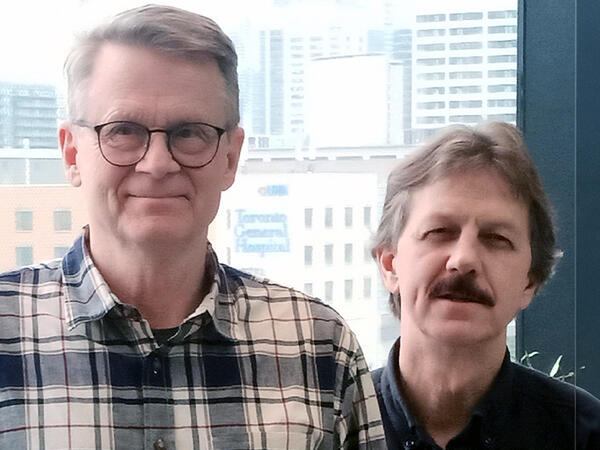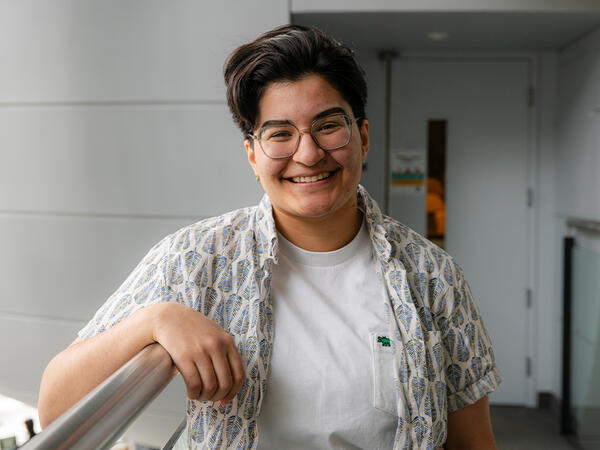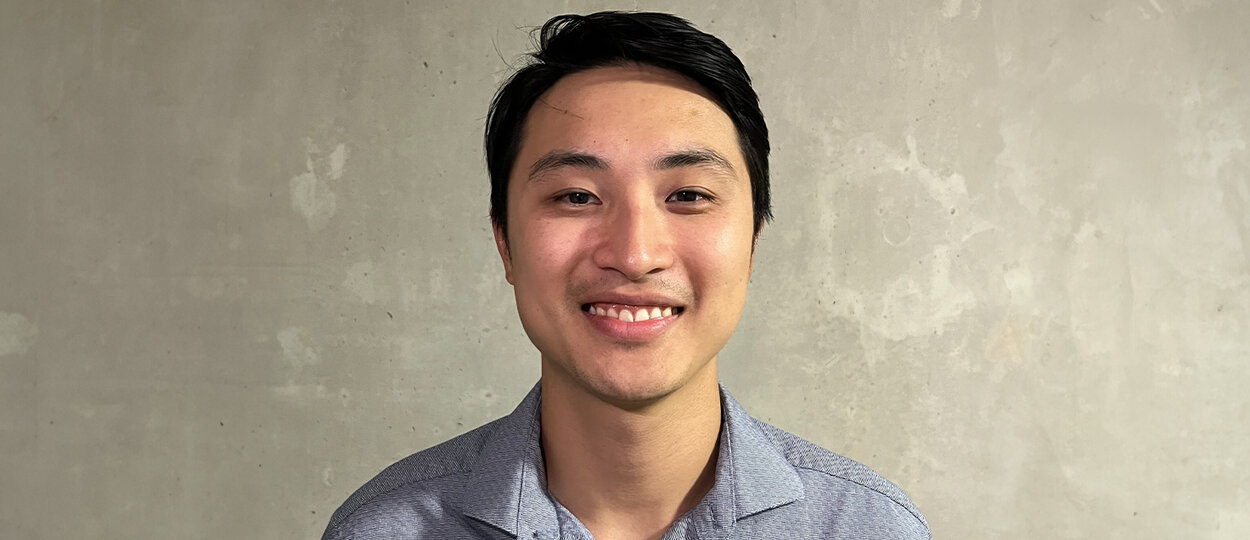Combined hospital residency/master’s program allowed Loi to advance clinical and research skills
Avery Loi says that his recently completed Master of Science from the Leslie Dan Faculty of Pharmacy has equipped him with the skills and abilities necessary to embrace a diverse array of roles and responsibilities in his career ahead. Loi first earned a Doctor of Pharmacy (PharmD) from U of T’s Leslie Dan Faculty of Pharmacy in 2020. From there, he started the combined Hospital Pharmacy Residency/Master of Science program that fall, completing his residency at University Health Network (UHN).
Following the one-year residency, Loi became a clinical pharmacist at UHN and continued his master’s degree with supervisor Beth Sproule, associate professor and clinician-scientist at the Leslie Dan Faculty of Pharmacy and the Centre for Addiction and Mental Health (CAMH). His research focused on developing and evaluating a tool to help pharmacists assess and manage patients who are using cannabis. He was also in the first cohort of the Toronto Cannabis and Cannabinoid Research Consortium fellow.
We spoke with Loi about his time at the Leslie Dan Faculty of Pharmacy, his graduate research, and his plans for his career.
How did you become interested in a career in pharmacy?
While I was doing my undergraduate degree at Western University, I was looking at different fields that interested me. I was interested in how drugs worked, and I enjoyed seeing how medications were able to help people. Pharmacy was a natural extension of that interest.
After completing your PharmD, why did you decide to pursue graduate studies on top of clinical work?
I thought that if I ever wanted to expand my clinical role in the future, whether that be through research, teaching or management, having that additional experience and learning would be helpful. I found out about the Hospital Pharmacy Residency/MSc combined program, and I thought it would be a good opportunity to advance my clinical skills and earn a graduate degree at the same time. One of the residency projects available was related to cannabis, and I was able to connect that work with my master’s research project with Beth Sproule, based at CAMH.
What was your research project about?
Throughout my PharmD, cannabis had always been an up-and-coming area with lots of work that needed to be done. In my residency project, we developed and validated a tool to help community pharmacists assess patients who are using cannabis medically or recreationally by providing them with the necessary information and clinical knowledge.
In my master’s work, we built off that tool and implemented it in community pharmacies as an exploratory study to see how pharmacists were actually using it in practice.
We saw that there was a large opportunity to provide evidence-based cannabis care, from the lens of patients and providers. We were able to reach many patients interested in cannabis information, and a lot of our pharmacist participants reported a sense of empowerment from using our tool. It was also important for us to look at some of the barriers to implementation, which were similar to implementing other kinds of clinical services – lack of time or other resources like staffing. We also noticed some pharmacists had difficulties having conversations about cannabis, which could be due to stigma or different ideas of what is proper use of cannabis.
What were some of the highlights of your time at the Leslie Dan Faculty of Pharmacy?
I made a lot of great friends while I was there, and the Faculty provided a lot of unique opportunities. What was most impactful for me was doing the research elective. Having exposure to that part of pharmacy sparked my interest in research and pointed me in the direction of the master’s degree.
What's next for your career?
In the short term I want to take a lot of the skills that I developed through this program and incorporate them to expand on my current practice in hospital. I learned a lot of key skills, like how to communicate efficiently, how to really be thorough and have systematic processes. I can take these skills to my clinical practice and provide better patient care or even think about how we can improve things on a bigger scale.
I also hope to continue to be a part of the cannabis research moving forward. I want to see where it goes and how it can really help patients, pharmacists and maybe other health care providers look after patients who use cannabis.
How will the Master’s degree help advance your career?
The degree is very broad in what it can lead to. In pharmacy, you can take on many different roles, whether that’s in the hospital, research, teaching, or even industry. If I want to take on a different role, having the skills and experience from the degree gives a lot of flexibility in where I can go moving forward. There are so many more doors that can open.
More News
Image

Jeffrey Henderson Receives Prestigious Connaught Innovation Award
Award will support research to advance novel method of modifying cells for testing new gene therapies.
Read More
Image

Faces of PharmSci: Mahya Rezaeifarimani
Supervised by Prof. Shirley Wu, PhD student Mahya Rezaeifarimani is developing smart nanoparticles to help make radiation therapy work better for brain tumours by targeting low-oxygen areas that often make treatment less effective.
Read More
Image

Dean Lisa Dolovich reappointed for second term
Professor Lisa Dolovich has been reappointed for a second term as Dean of the Leslie Dan Faculty of Pharmacy, University of Toronto, effective July 1, 2025, to December 30, 2030.
Read More
